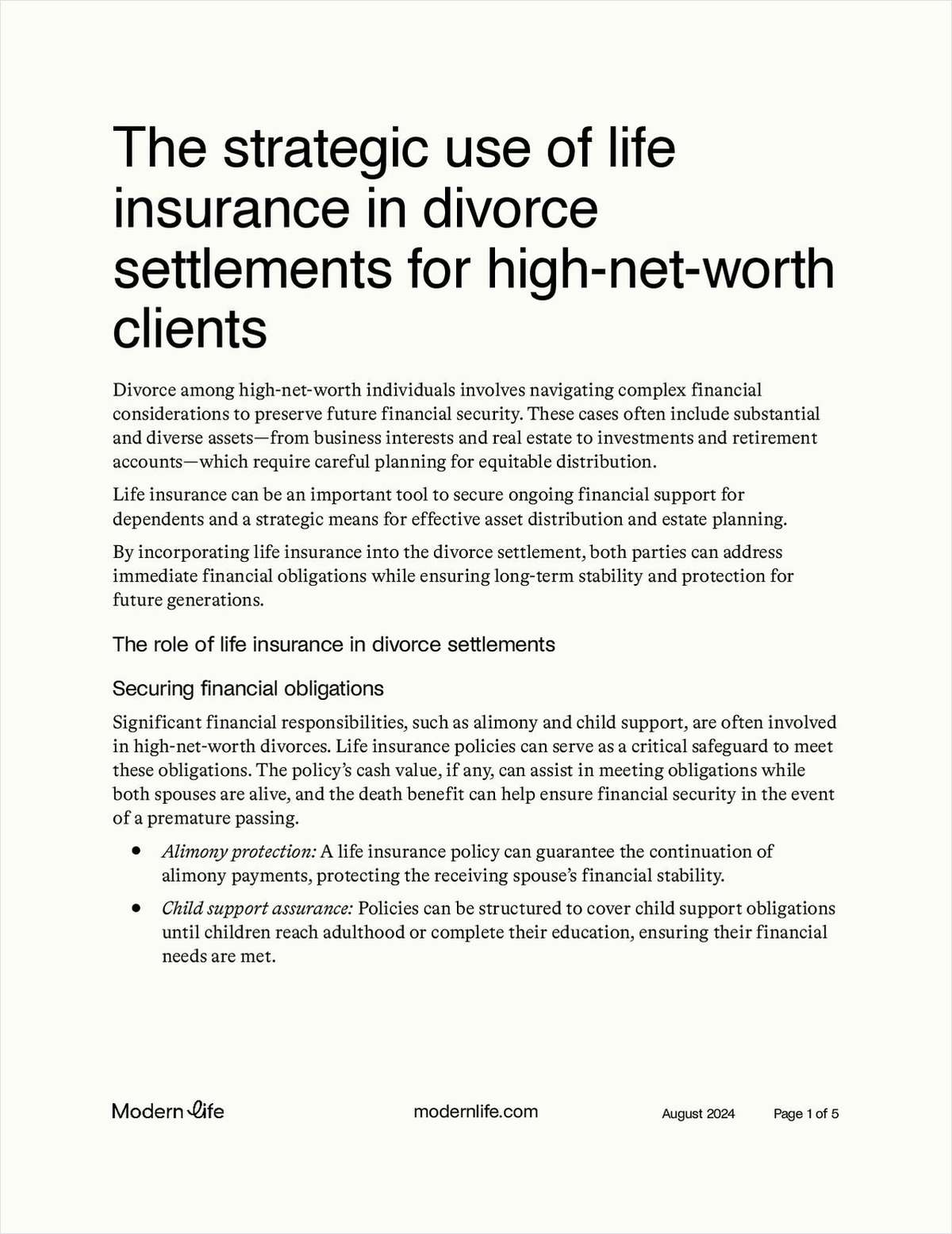Efforts continue to narrow what regulators feel will work and what won't as the principles-based reserving project continues toward completion.
State insurance regulators at the National Association of Insurance Commissioners, Kansas City, Mo., are working with life insurers and actuaries to develop a new reserving system. The work is looking at many facets of such a new system. As part of that overview, regulators are discussing an exposure draft of the Principles-based Valuation Review Opinion model regulation.
Many in the industry feel that a system based on actuarial principles rather than formulaic reserves would make for more efficient use of capital and a more competitive life insurance industry. However, some regulators feel that governance measures need to be in place to ensure that companies accurately portray their financial picture and do not make assumptions that are overly aggressive.
Shirley Hwei-Chung Shao, chairperson of the American Academy of Actuaries principles-based review and governance working group, reviewed the Academy's latest discussions regarding issues surrounding governance and requested feedback from regulators.
Regulators participating in the NAIC's Life & Health Actuarial Task Force took a straw poll on 3 questions posed by Mike Batte, a New Mexico life actuary and co-chair of the group.
The first question posed was whether actuaries auditing a principles-based review should be associated with a consulting firm that is contracted by an insurer. Seven regulators responded 'yes'; 4, 'no'; one abstained; and one did not respond to the question.
A second straw poll taken among regulators addressed whether the principles-based actuarial review opinion should be made public or should be kept confidential. Five regulators said that it should be made public; 2 that it should not be made public; and 6 abstained on the issue.
A third question addressed the issue of whether the actuarial report should be a single report for all lines of business or whether there should be individual reports for individual lines of business. Nine regulators responded that the Academy recommendation should be for a single line of business; 3 abstained and 1 did not respond to the question.
During the course of the discussion, Shao made clear that in the Academy draft, principles-based reviewers would not be in the position of reviewing their own work and that if a reviewer was employed by an auditing company, neither the reviewer nor the auditing company that hired the reviewer would be checking each other's work.



